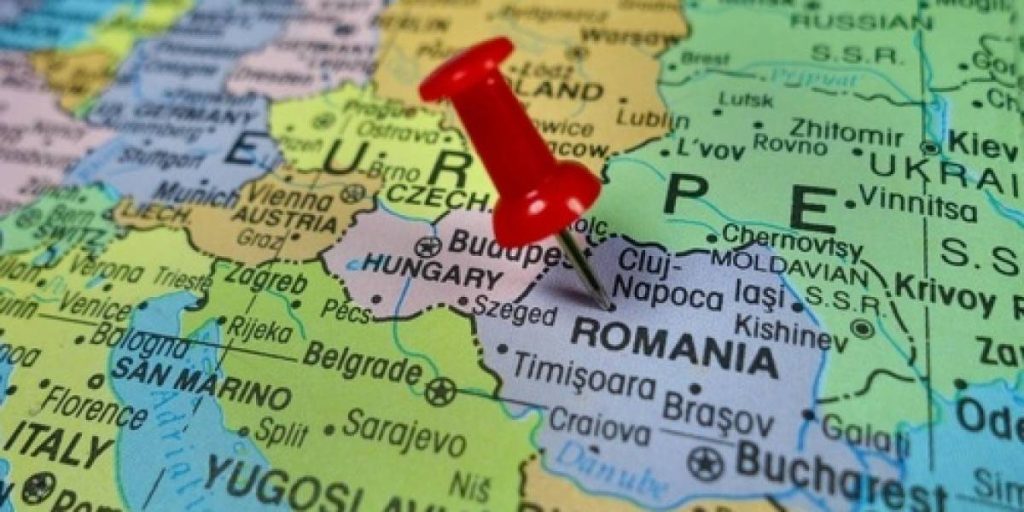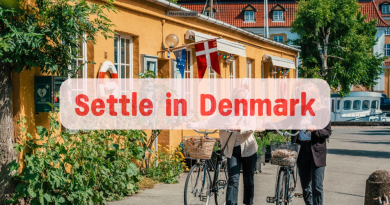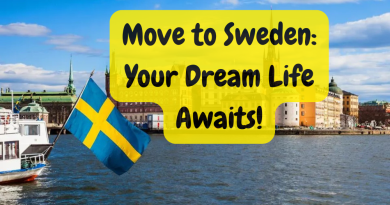Unlock Your Europe Dream in Romania: Schengen Country? Yes
රොමේනියාව ශෙන්ගන් මෙන්ම, එය යුරෝපියන් යුනියන් එකට අයත් රටක්. මෙහි ජීවන වියදම සාපේක්ෂව අඩු බැවින් ආගමනිකයන් සහ ජාත්යන්තර ශිෂ්යයන් අතර වඩාත් ජනප්රිය රටක්. ඔබටනිවාස, ප්රවාහනය සහ දෛනික ජීවන අවශ්යතා අඩු වියදමින් සපුරා ගැනීමට හැකියාවක් ඇති අතර, Bucharest, Cluj-Napoca සහ Timișoara. වැනි විශාල නගර ද මේ අතර වනවා. සීග්ර අර්ථික වර්ධනයක් පෙන්වන රොමේනියාව මේ වන විට තාක්ෂණ, කෘෂිකාර්මික, සහ නිෂ්පාදන අංශවලදී සීග්ර වර්ධනයක් දක්වයි. ඒ නිසා බොහෝ රැකියා අවස්ථා වර්ධනය වීම පෙනෙන්නට තිබෙනවා.රොමේනියාවේ ජාතික භාෂාව රොමේනියානු වුණත්, නාගරික ප්රදේශවල ඉංග්රීසි පුළුල්ව කතා කරන නිසා, පැමිනෙන්නන් හට භාෂාව එතරම් ගැටලුවක් නෙවේ. සෞඛ්ය සේවාව ඉහල මට්ටමේන් අති අතර, පොදු සහ පෞද්ගලික රෝහල් සේවාවන් ලබා ගත හැක.අධ්යාපනය සදහා හොඳ තේරීමක් ලෙස රොමේනියාව හැඳින්විය හැක. විශේෂයෙන් වෛද්ය, ඉංජිනේරු, සහ ව්යාපාර ක්ෂේත්රවල මෙන්ම අනෙකුත් ක්ෂේත්රවල ඉංග්රීසියෙන් පාඨමාලා ලබාදෙන විශ්ව විද්යාල ගණනාවක් තිබේ. මේ නිසා ලොව පුරා ශිෂ්යයන් අතර රොමේනියාව ඉතාමත් ජනප්රිය රටක්. මේ සියල්ල සලකා බලනවිට නව වෘත්තීය අවස්ථා එක් කරමින්, රොමේනියාව ජීවත් වීමට,රැකියා සදහා, සහ අධ්යාපනය සදහා ඉතාමත් ජනප්රිය රටක් ලෙස නම් කල හැක.
Romania, an EU country and part of the Schengen Area, is a welcoming and affordable European destination, with a low cost of living that attracts migrants and international students. Housing, transportation, and everyday expenses are budget-friendly compared to many Western European countries, allowing for a comfortable lifestyle even in larger cities like Bucharest, Cluj-Napoca, and Timișoara. The Romanian economy is on a steady rise, with strong sectors in technology, manufacturing, and agriculture, which offer many job opportunities and contribute to the country’s modernization.
Romanian is the national language, but in urban areas, English is widely spoken, making it easier for newcomers to communicate and settle in. The healthcare system in Romania includes both public and private services; while public healthcare is available, many people choose private options for faster care and better facilities. Education is well-regarded in Romania, with many universities offering courses in English, particularly in fields like medicine, engineering, and business, making Romania a popular destination for students from around the world. Overall, Romania combines a rich cultural heritage, beautiful landscapes, and increasing career opportunities, making it an appealing place to live, work, and study.
1. Skilled Worker Pathway (Work Visa – Single Permit)
මෙම මාර්ගය විශේෂිත කුසලතා සහිත පුද්ගලයින්ට, උදාහරණ ලෙස IT, ඉංජිනේරු, සෞඛ්ය සේවා, කෘෂිකාර්මික, හෝ ඉදිකිරීම් වැනි ක්ෂේත්රවල පළපුරුද්දක් ඇති අයට, රොමේනියාවේ ජීවත් වීමට හා රැකියාවක් ලබා ගැනීමට පහසුකම් සලසන ක්රමයකි. මෙය ඔබට යුරෝපා රටක ස්ථිර ජීවිතයක් ආරම්භ කිරීමට හොඳ අවස්ථාවක් ලෙස හැදින්විය හැකිය. work permit ලබා ගැනීම සදහා මුලින්ම, ඔබට රුමේනියානු සේවායෝජකයෙකුගෙන් රැකියා යෝජනාවක් ලබා ගත යුතුය. එසදහා ඔබට Jobs වලට අයදුම් කිරීමට සිදු වෙනවා. LinkedIn හරහා අයදුම් කිරීමේ ක්රියාවලිය උදාහරණයක් ලෙස කිව හැකිය. ඔබට රැකියාව ලැබුනු පසු , ඔබේ සේවායෝජකයා රුමේනියානු විදේශීන්ගෙන් මූලස්ථානයේ (IGI) වැඩ බලපත්රය සඳහා අයදුම් කිරීම සිදු කල යුතුය. work permit ලැබුණු පසු, ඔබ ලංකාවේ ඇති රුමේනියානු තානාපති කාර්යාලයේදී D වීසාව සඳහා අයදුම් කල යුතුය. අයදුම්පත සමඟ, work contract එක , නවාතැන් සහතිකය, සහ සෞඛ්ය රක්ෂණය ඇතුළත් කර ගෙන යාම වැදගත්. රුමේනියාවට පැමිණි විගස, ස්ථානීය අධිකාරීන් වෙත ලියාපදිංචි වී, Resident permit සඳහා අයදුම් කළ යුතුය. මෙ මඟින් දිගුකාලීන නේවාසිකත්වය සඳහා අවස්ථාවක් ලැබේ. අවුරුදු පහක් ගත වූ පසු, permanent residency සඳහා සුදුසුකම් ලැබිය හැකි අතර පවුලේ සාමාජිකයන්ටත් ඔබ සමඟ රුමේනියාවේ පදිංචිවීමට සහ රැකියාවක් කිරීමට අයිතිය ලැබේ.
Individuals with specialized skills, higher education, or professional experience in high-demand sectors such as IT, engineering, healthcare, construction, or agriculture may be eligible for employment in Romania. The process begins with securing a job offer from a Romanian employer. Once obtained, your employer must apply for a work permit on your behalf from the Romanian General Inspectorate for Immigration (IGI), demonstrating that the role could not be filled locally. With the work permit, you can then apply for a long-stay visa (D Visa) at a Romanian embassy in your home country, providing documents such as the employment contract, proof of accommodation, and medical insurance. Upon arrival in Romania, you must register with local authorities and apply for a residence permit. This pathway offers the opportunity for longer-term residency and, after five years, the potential eligibility for permanent residency. Family members are generally allowed to reside in Romania and are eligible to work.
2.Seasonal Worker Pathway (Non-Skilled Temporary Work)
For those seeking temporary work, particularly in sectors like agriculture, hospitality, or tourism where demand for seasonal labor is high, there are specific requirements and processes. First, securing a seasonal job in Romania is essential, often facilitated through recruitment agencies that connect foreign workers with Romanian employers. Once a job is secured, the employer applies for a temporary work permit, which is valid for six months and can be extended if needed. After receiving the work permit, you can apply for a short-stay visa (Type C Visa) at the Romanian embassy, valid for the duration of your seasonal contract. This permit allows you to work only temporarily in Romania, with no long-term residency options. The main benefits include short-term work experience in Romania and the opportunity for repeat contracts if the employer requires ongoing seasonal work. Family members may stay in Romania during the worker’s seasonal employment, but they generally cannot work unless they obtain separate work permits.
රොමේනියාවේ කෘෂිකර්මය, ආපනශාලා හා හෝටල් කළමනාකරණය, සහ සංචාරක ක්ෂේත්රය යනාදිය සඳහා seasonal worker සඳහා ඉහළ ඉල්ලුමක් පවතී. විදේශ කම්කරුවන්ට රොමේනියානු නියෝජිතයන් සමඟ සම්බන්ධ කරවන බඳවා ගැනීමේ නියෝජිත කාර්යාල මගින් මෙම රැකියා ලබා ගැනීම පහසු වේ. කම්කරු සඳහා නියෝජිතයා විසින් මාස 6ක කාලයක් වලංගු කාලීන රැකියා අවසරපත්රයක් ඉල්ලුම් කරන අතර, අවශ්ය නම් එය දිගු කළ හැක. නියෝජිත ගිවිසුමේ කාලසීමාවට අදාළව රොමේනියානු තානාපති කාර්යාලයේදී කෙටි කාලීන වීසා (Type C) සඳහාද අයදුම් කළ හැක. මෙම අවසරපත්රය මගින් කම්කරුට තාවකාලිකව රොමේනියාවේ රැකියා කිරීමට හැකියාව ඇතත්, දිගු කාලීන පදිංචි කිරීමට අයිතියක් නොමැත. කෙටි කාලීන සේවා අත්දැකීම් ලබා ගැනීමේ අවස්ථාවක් සහ නැවත ගිවිසුම් මගින් රැකියාව දිගටම කරගෙන යාමට ඇති හැකියාව ප්රධාන ප්රතිලාභ වේ. තවද, කම්කරුගේ පවුලේ සාමාජිකයන්ට කාලීන සේවා කාලය තුළ රොමේනියාවේ රැඳී සිටිය හැකි නමුත්, ඔවුන් work permit ලබාගත නොහොත් රැකියා කිරීමට නොහැක.
3. Self-Employed and Freelance Work (Entrepreneurial Path)
Professionals or entrepreneurs who wish to start their own business, become self-employed, or work as freelancers in Romania must follow a structured process. This begins with developing a viable business plan if starting a company, or demonstrating substantial freelance income if working independently. To become self-employed, individuals must apply for a permit that allows self-employment in Romania, often contingent on the nature of the business and its potential economic impact. Additionally, for those establishing a business with a substantial investment, applying for an investor visa is an option. These pathways offer independence to skilled professionals and, if successful, the opportunity to secure a long-term residence permit. Family members are also allowed to reside in Romania and can apply for work permits if they wish to work independently.
ව්යවසායකයන්ට හා ඔබගේ ව්යාපාරයක් කිරීමට කැමති ඔබට, මෙය අවස්ථාවක් වේ. මෙසේ කටයුතු කිරීම සඳහා ඔබට Business Plan එකක් ඉදිරිපත් කිරීම අත්යාවශ්යයි. එහි ව්යාපාරයීය සියලු ක්රියාවලීන් අන්තර්ගත විය යුතුයි. ව්යාපාරිකයන්, ස්වයං රැකියා හො නිදහස් වෘත්තියකරු වීමට කැමති නම්, එ සදහා පියවර කිහිපයක් ඇත. ස්වයං රැකියා කරන බවට පරීක්ෂා කිරීමට, පටන් ගත් ව්යාපාරයක් සාර්ථක හැකි සැලසුමක් සකස් කිරීම, හෝ නිදහස් වෘත්තියකරු වීමට ප්රමාණවත් ආදායමක් පෙන්වීම ඉතා අත්යාවශ්යයි. මෙය රොමේනියාවේ investor visa ලබා ගැනීම සඳහා අවශ්ය වන අතර, එය ව්යාපාර ස්වභාවය හා එය ඇති ආර්ථික බලපෑම මත වෙනස් නොවේ. ආයෝජක වීසා ලබා ගැනීමට, ප්රමාණවත් ආයෝජනයක් සහිත ව්යාපෘතියක් ස්ථාපනය කිරීමේ අවස්ථාවක් ඇත. මෙහිදී ව්යාපාරය සාර්ථක වන්නේ නම් දිගු කාලීන පදිංචියක් ලබා ගැනීමේ හැකියාව මෙන්ම පවුලේ සාමාජිකයන්ට ද රොමේනියාවේ රැඳී සිටීමට සහ work permit සඳහා අයදුම් කළ හැකිය.
4. Student Pathway to Work Opportunities
For students pursuing higher education in Romania who wish to work part-time or stay in the country after graduation, there is a specific process to follow. Initially, students must apply for a student visa (D Visa for Studies) if they are enrolled in a Romanian university. This visa allows part-time work of up to 20 hours per week. Upon graduation, students who secure a job in Romania can apply for a work permit, which allows them to convert their student visa into a work visa. This pathway provides a valuable opportunity for young migrants to build a career in Romania while receiving an education. Additionally, in many cases, the family members of students may also have the right to work in Romania without needing a separate work permit.
අධ්යාපනය ලැබීමට කැමති ඔබට Student Visa අයදුම් කිරීමේ අවස්ථාව ඇත. එහිදී, අවශ්ය නම්, එම කාලය තුළpart time jobs කිරීමටත් අවස්ථාව සලසයි. අධ්යාපනය ලැබීමෙන් පසුද පසු රට තුළ රැඳී සිටීමට මෙම මගින් අවස්ථාව ලැබේ. පළමුව, රොමේනියාවේ විශ්වවිද්යාලයකට ලියාපදිංචි වූ නම්, ශිෂ්ය වීසා (D Visa for Studies) සඳහා අයදුම් කිරීමට අවශ්ය වේ. මෙම වීසා 20 පැයකට වැඩ කිරීමට පහසුකම් ලබාදෙයි. post study කාලය තුල , රොමේනියාවේ රැකියාවක් ලැබුවහොත්, work permit සඳහා අයදුම් කිරීමට මෙන්ම, ඔවුන්ගේ student visa, work visa ලෙස මාරු කිරීමට හැකියාව ලැබේ . එමෙන්ම පවුලේ සාමාජිකයන්ට වෙනම work permit සඳහා අයදුම් කිරීමට අවශ්ය නැත.




